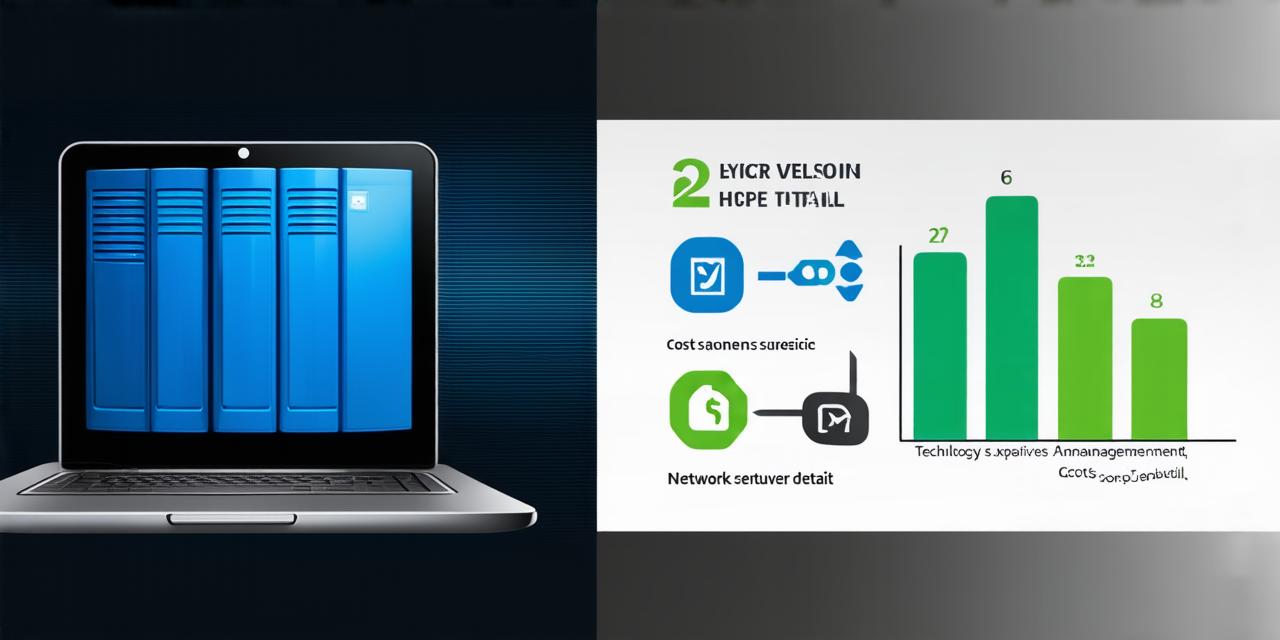As businesses continue to grow and expand, IT infrastructure becomes increasingly important. While many companies opt to outsource their IT needs, others choose to use managed IT services.
What are Managed IT Services?
Managed IT services refer to a range of IT management and maintenance solutions that are designed to help businesses manage their technology infrastructure. These services typically include hardware and software installation, maintenance, security updates, and ongoing support from a team of IT professionals.
Pros of Managed IT Services
- Reliability: With managed IT services, your business can enjoy 24/7 uptime and reliability. This means that you won’t have to worry about technical issues or downtime affecting your operations.
- Cost Savings: By outsourcing your IT needs, you can reduce the costs associated with hiring and training in-house IT staff. Managed IT services also help businesses save on hardware and software expenses.
- Expertise: A managed IT service provider typically has a team of highly skilled IT professionals who are up-to-date on the latest technology trends and best practices. This means that your business can benefit from their expertise and knowledge.
- Scalability: Managed IT services allow businesses to scale up or down their IT infrastructure as needed. This means that you can easily add new hardware, software, or services without having to worry about managing them yourself.
Cons of Managed IT Services
- Limited Customization: With managed IT services, you may have limited control over the specific technology solutions and configurations that are used in your business. This means that you may not be able to customize your IT infrastructure to meet your unique needs.
- Contractual Commitments: Managed IT services typically require businesses to sign long-term contracts with their service providers. This means that you’ll need to make a significant commitment before you can start using these services.
- Security Risks: While managed IT service providers take steps to ensure the security of your technology infrastructure, there is always some risk associated with outsourcing sensitive data and systems. You’ll need to carefully vet potential service providers and implement strong security measures to protect your business from cyber threats.
What are Outsourcing IT Services?
Outsourcing IT services refers to the practice of hiring a third-party company to manage and maintain your technology infrastructure. This may include tasks such as hardware installation, software configuration, network management, and security monitoring.
Pros of Outsourcing IT Services
- Cost Savings: By outsourcing your IT needs, you can reduce the costs associated with hiring and training in-house IT staff. This means that you can allocate more resources to other areas of your business.
- Expertise: An outsourcing partner typically has a team of highly skilled IT professionals who are up-to-date on the latest technology trends and best practices. This means that your business can benefit from their expertise and knowledge.
- Scalability: Outsourcing allows businesses to scale up or down their IT infrastructure as needed. This means that you can easily add new hardware, software, or services without having to worry about managing them yourself.
- Focus on Core Business Activities: By outsourcing your IT needs, you can free up time and resources to focus on your core business activities. This means that you can invest more in areas such as product development, marketing, and customer service.

Cons of Outsourcing IT Services
- Limited Control: With outsourcing, you may have limited control over the specific technology solutions and configurations that are used in your business. This means that you may not be able to customize your IT infrastructure to meet your unique needs.
- Security Risks: Outsourcing sensitive data and systems to a third-party provider can come with security risks. You’ll need to carefully vet potential partners and implement strong security measures to protect your business from cyber threats.
- Contractual Commitments: Like managed IT services, outsourcing typically requires businesses to sign long-term contracts with their service providers. This means that you’ll need to make a significant commitment before you can start using these services.
- Communication Challenges: Effective communication and collaboration are essential for successful outsourcing. However, working with a third-party provider can come with communication challenges, such as language barriers or cultural differences.
Which One is Right for Your Business?
The decision to use managed IT services or outsource your IT needs depends on your business’s specific requirements and goals. If you value reliability, cost savings, expertise, and scalability, then managed IT services may be the right choice for your business. However, if you’re looking for more flexibility and control over your technology infrastructure, or if you want to focus on your core business activities, then outsourcing may be a better option.
To help you make an informed decision, it’s important to consider your business’s unique needs, budget, and goals. You should also carefully evaluate potential service providers, including their expertise, security measures, contractual terms, and communication capabilities. By taking the time to research and compare managed IT services and outsourcing options, you can make the best decision for your business.
FAQs
1. What is the difference between managed IT services and outsourcing?
Managed IT services refer to a range of IT management and maintenance solutions that are designed to help businesses manage their technology infrastructure. Outsourcing, on the other hand, refers to the practice of hiring a third-party company to manage and maintain your technology infrastructure.
2. What are the pros and cons of managed IT services?
The pros of managed IT services include reliability, cost savings, expertise, and scalability. The cons include limited customization, contractual commitments, security risks, and lack of flexibility.
3. What are the pros and cons of outsourcing IT services?
The pros of outsourcing IT services include cost savings, expertise, scalability, and focus on core business activities. The cons include limited control, security risks, contractual commitments, and communication challenges.
4. How can I evaluate potential managed IT service providers?
When evaluating potential managed IT service providers, you should consider their expertise, security measures, contractual terms, and communication capabilities. You should also ask for references from other businesses that have used their services.
